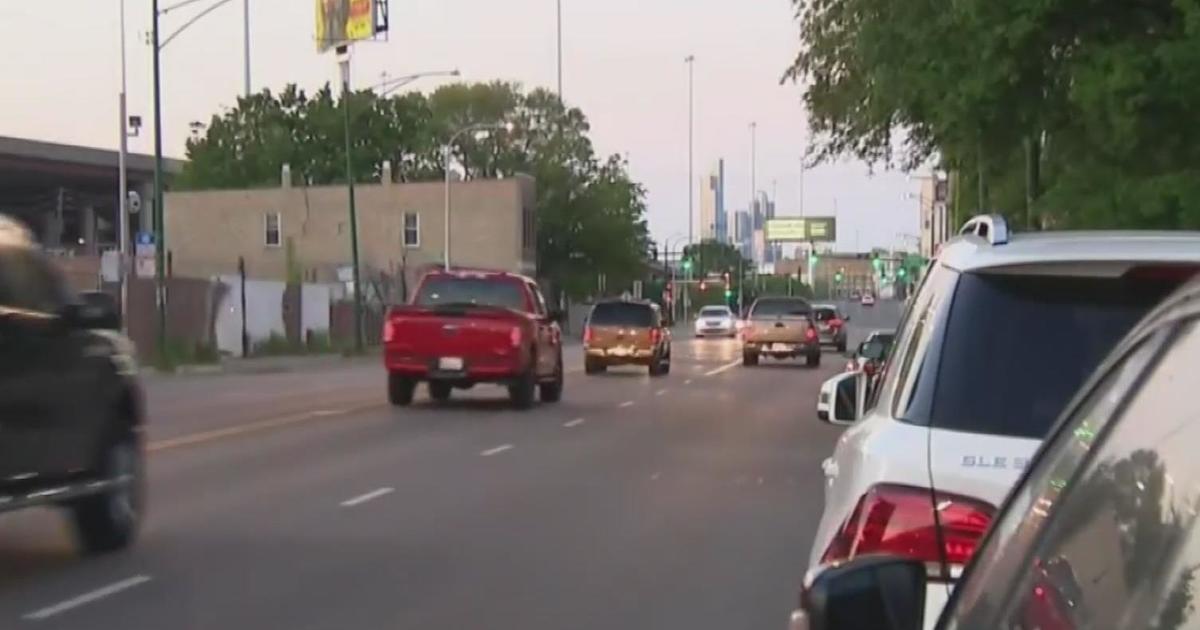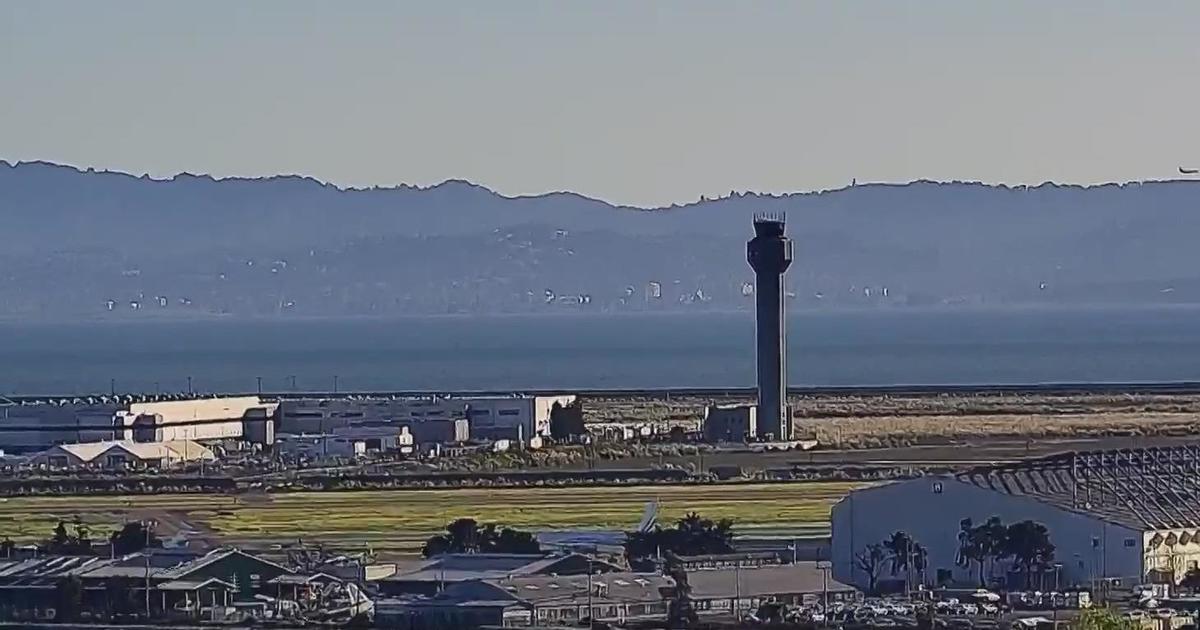COVID Purple Tier: 'Our Dangerous Winter Has Arrived,' Breed Warns Of New SF Restrictions, Possible Muni Layoffs
SAN FRANCISCO (CBS SF) -- Officials in San Francisco on Tuesday said the city would soon roll out stricter COVID regulations as case rates and hospitalizations continued to spike, with Mayor London Breed warning that budget issues could lead to major layoffs for SFMTA workers.
"We've been worried for months, but now it's real. Our dangerous winter has arrived," the mayor said during a press conference Tuesday updating the city's pandemic response.
Breed began her comments by discussing how San Francisco had gone from the good news of entering the yellow tier to cases and hospitalizations rising to levels that San Francisco had not seen during the pandemic.
"This isn't just about San Francisco. It's about our entire region, our state and our country," Breed said. "Even now, as hospitalizations are spiking, we are still taking in transfer patients from other counties. Because while it's getting bad here, it's even worse in other places."
San Francisco is currently averaging 16 new cases per day per 100,000 residents, more than quadruple the city's case rate for most of October, when it moved into the least-restrictive "yellow" tier.
Breed continued: "We are in the most dangerous periods of the pandemic. And we need to do everything we can to stay ahead of the hospitals not being overrun. This is about saving lives. Everything we are asking you to do over the coming weeks and months is about that, saving lives."
The city's number of hospitalized coronavirus patients has also doubled over the last 10 days, from 40 on Nov. 18 to 87 this past Saturday.
Breed went on to note that the city was planning on taking more restrictive action, following the lead of other Bay Area regions.
"While we are still working out the exact details, we are looking at examples like Santa Clara County, which is seeing alarm case rates increase," said Breed. "They've added mandatory travel quarantines and reduced capacities at businesses and limited gatherings. These are things we have to consider."
Breed suggested that the city's surge in new cases could soon reach a point where San Francisco would follow in Los Angeles County's footsteps by re-implementing a stay-at-home order, causing non-essential businesses to close like they did earlier in the year.
Breed said city officials have already discussed that concern with the Golden Gate Restaurant Association as restaurants face the possibility of pausing outdoor dining and subsisting only on takeout orders.
"Unfortunately we can't rule it out," Breed said. "As soon as we think it is absolutely necessary based on what we're seeing with this spike, based on what we're seeing with hospitalizations and the direction that our city is headed in, it could be a possibility."
Breed said that more specifics about the city's plan to increase COVID restrictions would be released in the coming days, possibly as soon as Wednesday.
Mayor Breed proceeded to address looming budgetary issues affecting San Francisco, specifically the SFMTA.
"From the beginning of this pandemic it has been my goal that we not lay off any city workers," explained Breed. "We were able to do that in our most recent two-year budget, but we know we have a long road ahead of us and we still have a lot of tough choices to make."
Breed warned that San Francisco Muni "is in deep trouble" financially because of the effects of the pandemic, and mass layoffs may be necessary without federal funding.
"Without more emergency federal funding, closing this deficit may require laying off between 18 and 22% of the [Muni] work force," said Breed. "The possibility of losing nearly a quarter of our work force at MTA is hard to imagine. But this is the reality we have to confront. We are facing the gutting of a basic city service that our residents rely on."
Upwards of 1,000 to 1,200 Muni employees could lose their jobs by the beginning of summer in 2021, according to some estimates.
Health Director Dr. Grant Colfax echoed the mayor's dire tone, issuing a stark warning that the surge threatens to overwhelm the city's health care system as well as the health care systems in the surrounding counties and state.
"The actions you take or don't take can impact you, your family, your friends. It is that simple," said Colfax. "We are all at risk for this virus. And we all need to take precautions. And while it is uncomfortable to think about, and we certainly hope that it doesn't happen, consider this: If you or a loved one becomes ill for an advisory, will there be a hospital bed to treat you or treat your loved one?"
Colfax continued: "If this trend continues, we will see a hospital bed shortage around Christmas. That is a sobering thought: San Franciscans sick from COVID-19 during the December holidays, with the real possibility of no available beds at our local hospitals."
Colfax said health officials are considering the Santa Clara County health order which requires those who travel to the county from more than 150 miles to quarantine for 14 days.
"Some of this new guidance will be issued this week. We must slow the spread of the virus or we will continue to see hospitalizations and unfortunately, death rates climb, possibly to numbers that we have never seen before," said Colfax. "Numbers that will overwhelm the health care system and tax the front line workers. We will become one of those cities that has struggled to deal with the virus in ways that we, thankfully, have not had to. It is not inevitable. We can slow the spread. It will not be easy and everyone has a part to play."
With Tuesday's grim announcements coming on World AIDS Day, both Breed and Colfax referred to San Francisco's important role in fighting that disease.
Colfax noted that there were parallels between COVID and the AIDS epidemic.
"As a gay man, as a physician who trained here in San Francisco during the some of the most severe days of the AIDS epidemic, every World AIDS Day, I think about the lives we could not save. So many of us lost family and friends, neighbors and colleagues. We could not save lives, because we did not yet have the tools to treat AIDS," said Colfax. "But we came together as a city and worked together, to find solutions. With this pandemic, we already have the knowledge; we know what it takes to fight the virus."
Still, Colfax pointed out that the city had risen to the occasion already and could do so again to stop the surge.
"San Francisco, we've beaten back two surges. And again, we need to beat back this third surge. Simply put, we need to slow the spread of this virus," said Colfax.



